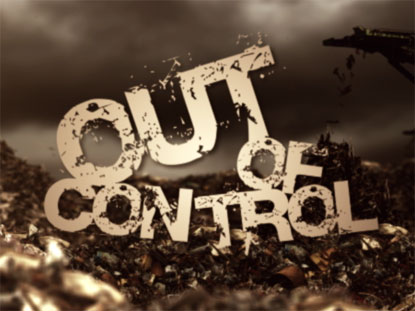Struggling Teens
The teen years are rife with difficulty. If you think back, it is likely that you will remember your own teen years as times that included painful scenes and a certain level of unhappiness. This is quite natural. Teenagers are dealing with rapidly developing bodies. Growth and development of the kind not seen since the earliest years of childhood are taking place. Even the brain is still developing at rapid rate.
In order for normal teen growth and development to take place, hormones must be released into the body. The hormonal and chemical changes that take place in a teen body can be sources of frustration, confusion and a myriad of other emotions that are normal during the teenage years. With all of this going on inside a teenager, it is little surprise that what goes on outside the body can affect teenagers as well.
Stresses related to schoolwork, extracurricular activities, a possible after school job, social pressures and anxiety about the future can all combine to push a teenager into troubled territory. Teenagers with challenging family situations, or who deal with a major upheaval in life (such as moving or a parent’s job loss), are even more likely to struggle.
Problems common to struggling teens
Struggling teens are those that are having a more difficult adjusting to what is going on in their lives. Struggling teens are beginning to act out undesirable behavior with increasing frequency. A certain amount of anger, withdrawal from family, mild rebellion and tension is to be expected during the teen years. However, struggling teens tend to exhibit such behaviors on an escalating scale. While normal teens might have mood swings and bad days, struggling teens tend to grow progressively worse in their behaviors as the struggles deepen.
Some of the problems that are common to struggling teens include:
- Hopelessness
- Depression
- Anxiety attacks
- Violence
- Substance abuse
- Disdain for authority
- Withdrawal from all family life
- Falling grades
- Loss of interest in activities once enjoyed
- Increase in unsafe sexual activity
- Drastic change in sleeping habits
- Change in eating habits, leading to dramatic weight gain or loss
If you see signs of the above with increasing frequency, there is a good chance that you are dealing with a trouble teenager. It is important to be on the alert for signs that your teenager may be struggling. This is because struggling teens can turn to illegal activities in order to attempt to fulfill some perceived need, or to help them deal with the problems of life.
Another concern is actually to do with health and wellbeing. Not all struggling teens lash out at their parents, becoming rebellious and turning to extreme sports or illegal drugs. Not all struggling teenagers turn physically violent toward others. Indeed, some troubled teens become suicidal, sure that the only way to escape the problems besetting them is to take their own lives. It is vital that you watch for signs of depression in teenagers, since it could lead to death.
Another health concern might be an eating disorder. Some teenagers turn to food for comfort during times of trouble. Overeating can result in a number of health problems now and in the future. The social consequences of rapid weight gain can also contribute to the complication of depression as a teen’s self image plunges. Anorexia is another eating disorder that can cause health problems. Some teenagers deny themselves food, or engage in bulimic behaviors, as a sign of struggle. These disorders come with their own set of health problems, some of which are long term.
The teen years can be tough on everyone. However, as a parent, it is up to you to watch your teenager for signs of struggle. There are programs that are designed to help struggling teens. Check with your local social services to find out about local support programs. You can also look into residential facilities and programs that specialize in helping struggling teens. The important thing, though, is to get help for struggling teens before the problems get completely out of hand and affect a teen’s future.

